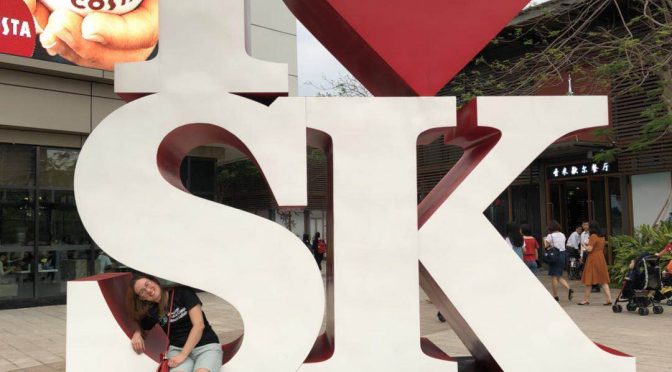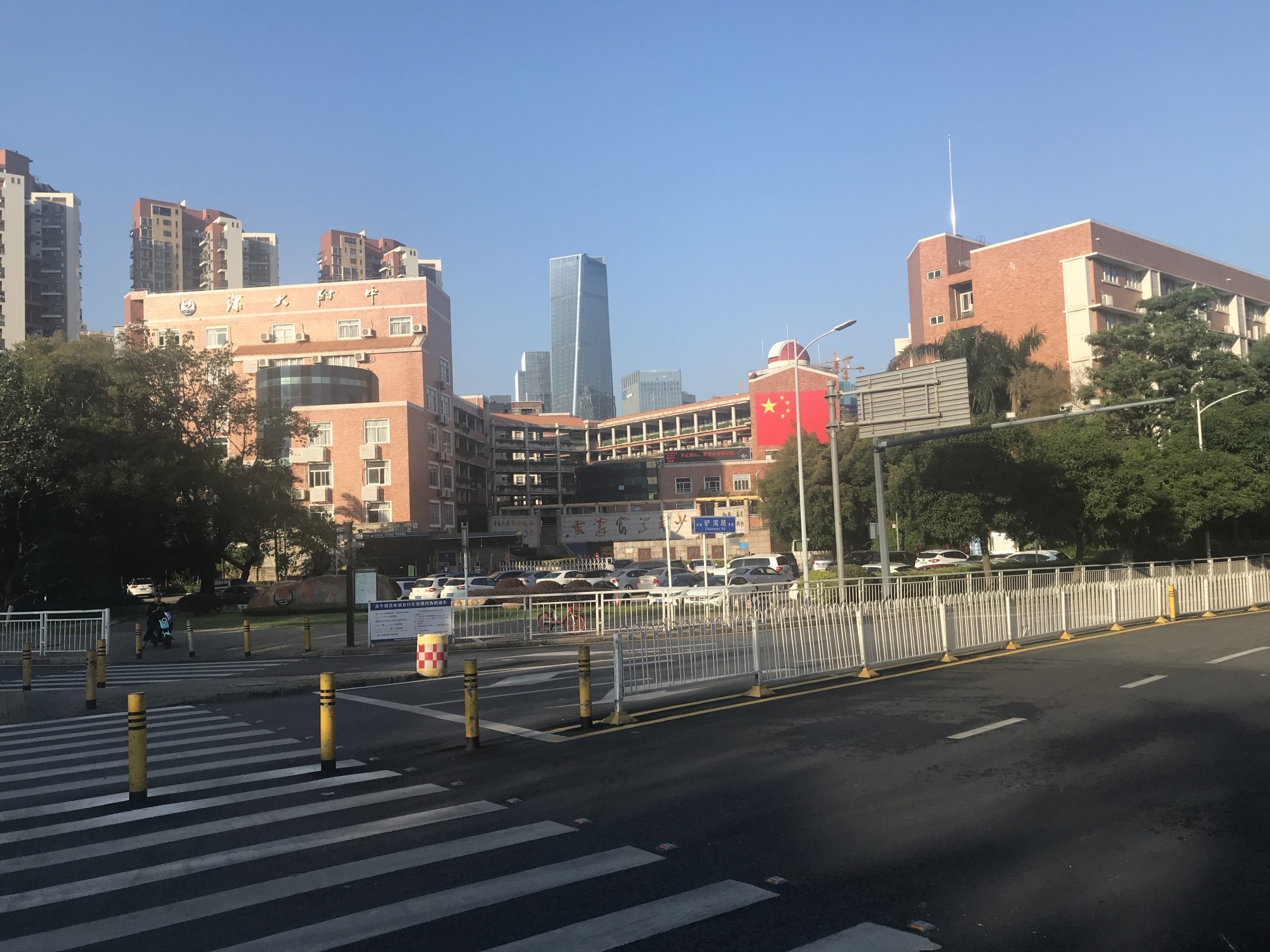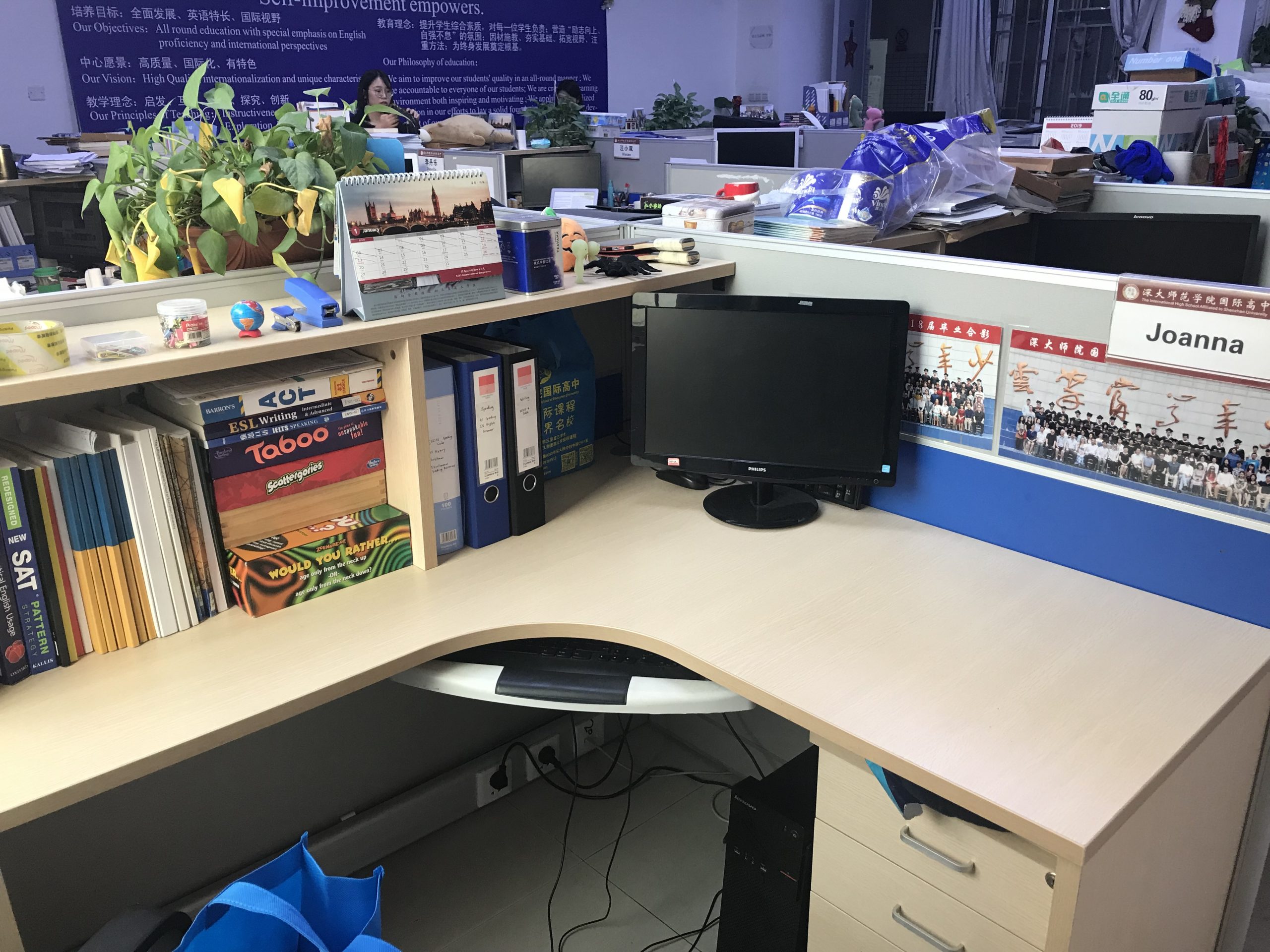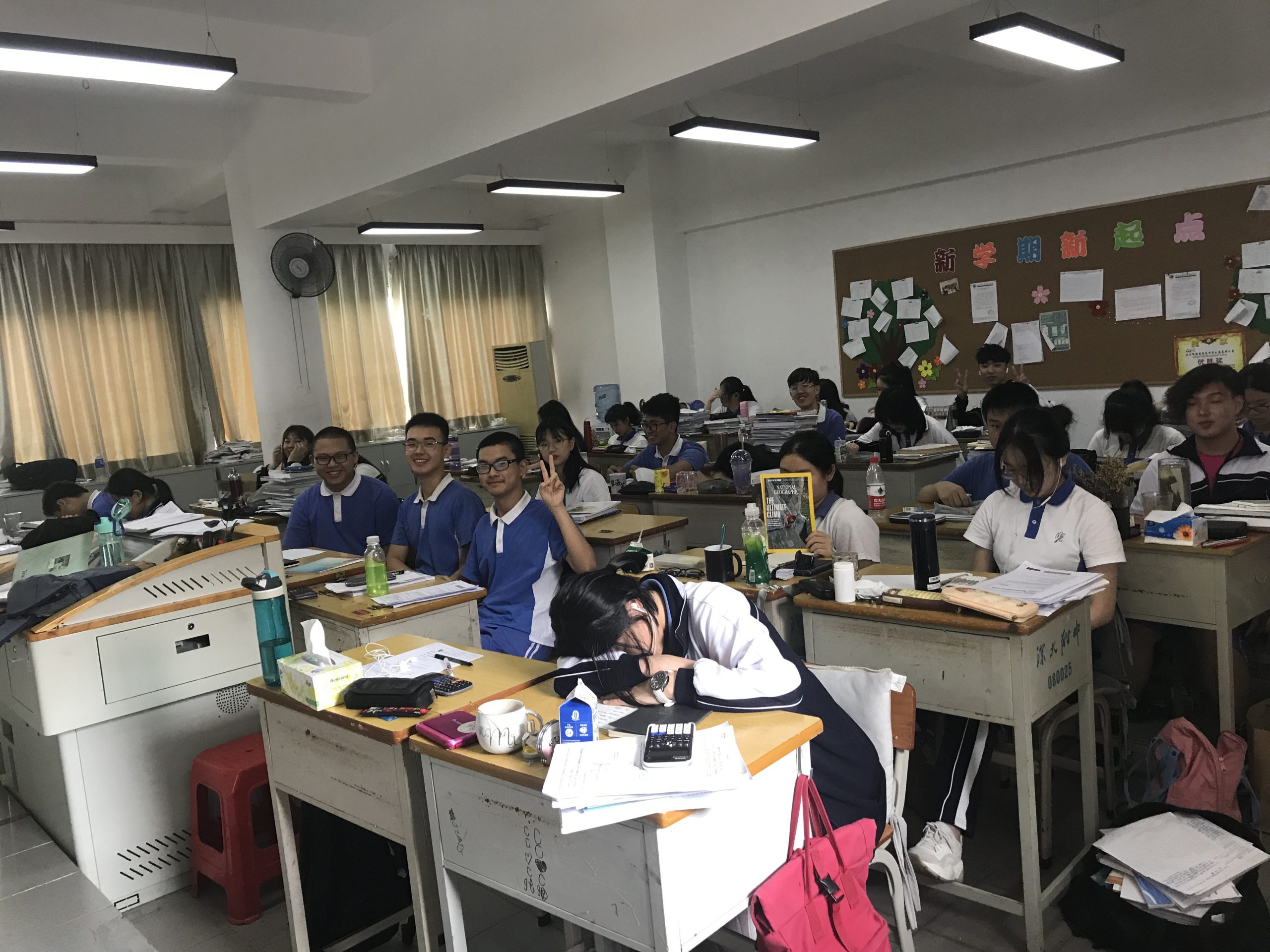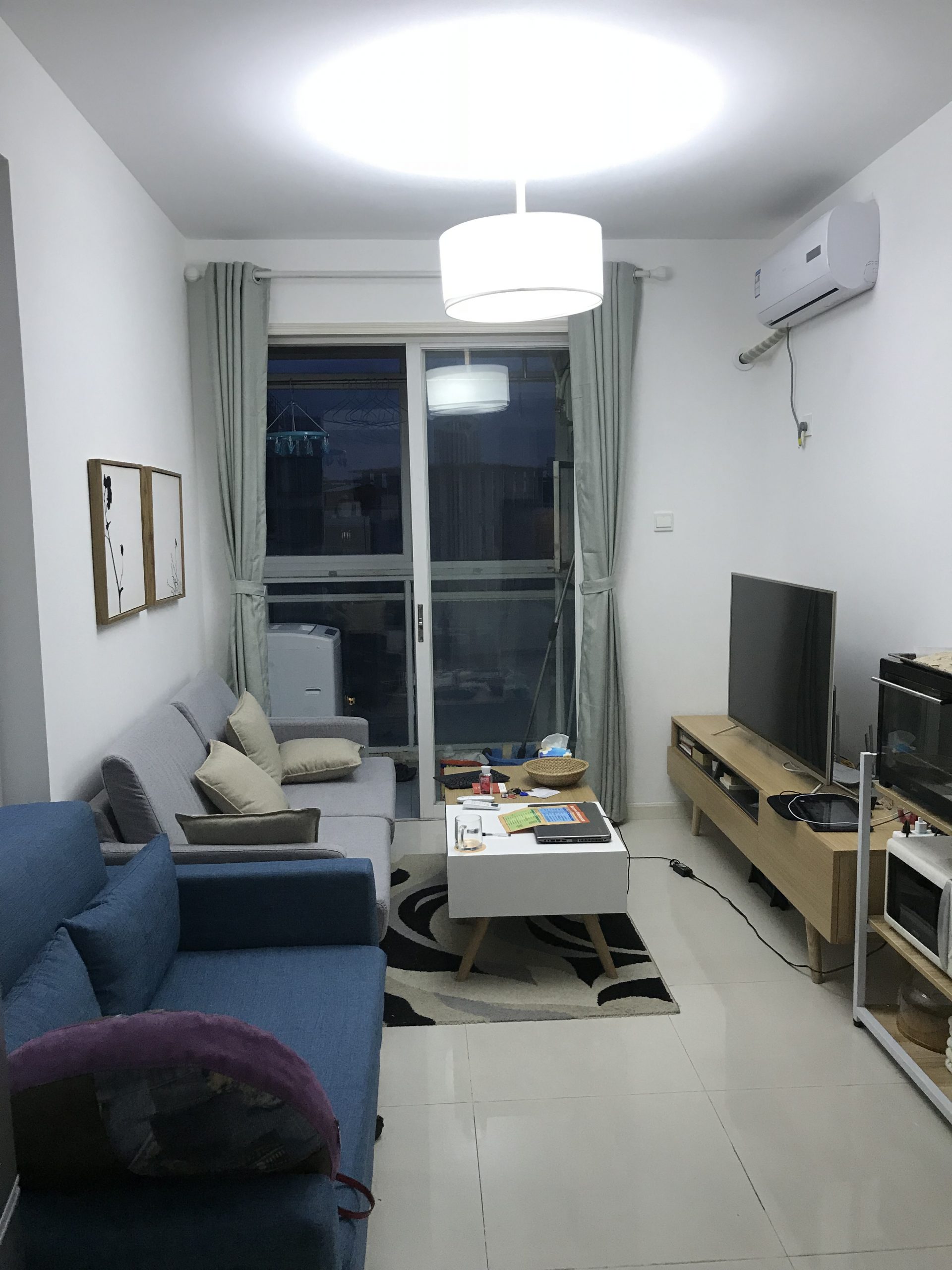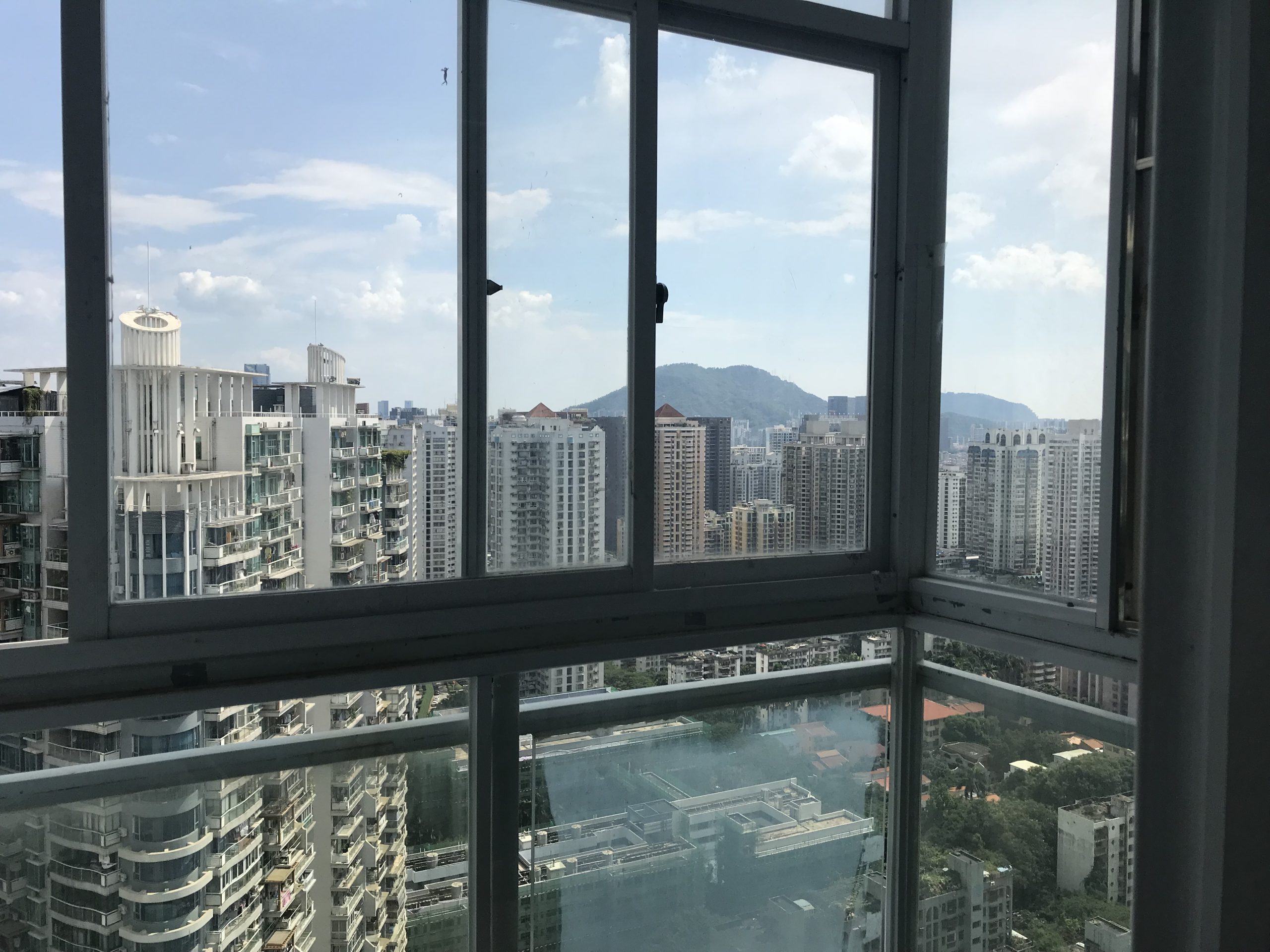Greetings from Shenzhen! I have been living and working in Shenzhen for nearly four years now. I started my English teaching career in China working for a company in Shanghai that hires foreign teachers and places them at schools throughout the city, which can be a good way to start your Chinese journey, but after four years in cold classrooms, I decided to move south. I chose Shenzhen because it has decent air quality (for China, anyway), warm winters, and is just across the border from Hong Kong and other interesting east Asian destinations. It’s also a first-tier city, meaning you can live a comfortably modern lifestyle.
My School
The school I work at is The Affiliated International School of Shenzhen University. It is a highly-ranked (if you care about such things; the Chinese people certainly do) school whose mission is to get its students into top-ranked western universities. Note: many Chinese schools say they are “international.” This may mean, as with my school, that it follows a non-Chinese curriculum and its graduating seniors do not take the infamous gaokao, because they will go abroad to study. But in fact, most of these schools (like mine) are not real international schools, as they are just for Chinese students and are run in a very Chinese way. This means that they employ traditional Chinese teaching methods and scheduling, with a strong emphasis on exams.
After having worked in non-“international” public and private Chinese schools, I can say that the only difference I’ve noticed here is in curriculum. We follow a Cambridge curriculum and our students take IGCSE and A-level exams, with a heavy emphasis on math, science and economics. Teaching is all about preparing students for exams. That is not to say that we don’t have good teachers who work hard to educate their students, but with the focus being on exams, there isn’t a lot of leeway for creativity.
That said, as a foreign teacher, I have more freedom in my teaching and less pressure from the administration. Let’s face it, many schools in China are hiring foreign teachers (especially white foreign teachers, I’m sorry to say) in part as an advertising scheme, and they may or may not take you seriously as a teacher. I’m fortunate in that I’ve had many colleagues who do take my skills and knowledge seriously, and that is partly why I’ve stayed here this long. My school treats its foreign teachers well; it honors our contracts, pays us on time, and we also receive vacation pay, annual raises and bonuses on various occasions, especially the much-anticipated Spring Festival red envelopes. In addition, I have a maximum teaching load of 24 hours/week, which I believe is just under the legal maximum. (So if your school or agency is asking you to teach a crazy amount of classes, like 30 a week, say no, or make sure they’re giving you overtime pay.)
I also am not required to keep office hours, although I do spend some time in the office to discuss student progress, exams, classes, etc., with my colleagues, to prepare lessons and to grade assignments. I don’t have any control over my schedule (although I’m sure I could make some requests, now that I have some seniority), so sometimes I may have a gap in my schedule that isn’t really long enough to go off somewhere, so I try to use that time productively. But some days I may have an entire morning or afternoon off, which is obviously very nice. Essentially, I am paid like I am working full-time, but I usually don’t actually work a 40-hour week, which leaves me plenty of time for other pursuits.
I also enjoy working with many of my students. One thing I like about working in China is that teachers are respected here. That is not to say that I haven’t had any obnoxious students, but for the most part, my high school students don’t cause much trouble. They don’t always listen or do their homework, but a lot of them are quite smart and they often surprise me with their comments or ideas. Sometimes the work of a teacher can be boring (reading endless essays, preparing worksheets, etc.), but the students usually aren’t. And the good thing about working at a highly ranked school is that we attract good students, so on average I’ve had better students every year I’ve been here.
Living in Shenzhen
As I already mentioned, Shenzhen is a first-tier city. It is the tech capital of China, and there are a lot of well-to-do Chinese people here, and also a lot of foreign business people. So, you can buy anything you want, and you can also find all the Western food you want, if you miss something from home. And if there is something you can’t find, you can always go to Hong Kong. The downside of this affluence, of course, is the prices, particularly when it comes to housing. My first apartment in Shenzhen was 32m2, and it cost nearly 4000rmb/month. Now I live in a 45m2 one-bedroom apartment that is about 6000rmb/month. Costs of course vary depending on the neighborhood, like in any city, and in Shenzhen it is common for companies to provide a monthly housing allowance in addition to your regular salary.
Some schools may provide housing, but I think this is normal only for universities, in general. Unlike when I worked for the company in Shanghai, my school only deals with about 10 foreign teachers, so they don’t have a lot of extra staff around to help the foreign teachers deal with issues like finding housing. They will help if you need it, but it’s basically extra work for them, so if you can find an apartment yourself you should do so. I found my apartment with the help of a local realtor, but in fact I’m renting from a company called Ziroom and do everything through an app on my phone, including paying rent and utility bills. But if you can’t read Chinese, you should always ask a Chinese friend or colleague to read the contract. That’s what I did after I decided to rent this apartment. I’m very happy with it, as it’s close to mass transit, shops and a nice park, and has a great view of Nanshan mountain. It is farther away from my school then my first apartment, which was a five-minute walk away, but the commute is just a short bus ride.
In summary, living and working in Shenzhen is pretty comfortable. I don’t always agree with everything my school does, but no job is perfect, and for the most part, I enjoy working with my colleagues and students. In addition, I have plenty of time to pursue my own interests, and even with the (relatively) high cost of living, I can save money. If you want to live in a modern Chinese city with convenient access to other destinations in southeast Asia, Shenzhen is a good choice.
Interested in working in China and want to find out more? Our UK agency ensures that schools are up to top standard and provides an additional layer of protection and reassurance when negotiating issues with your Chinese school. To find out the latest vetted and quality assessed top providers in China check out nooneliterecruitment.com/teach-english-in-china.

